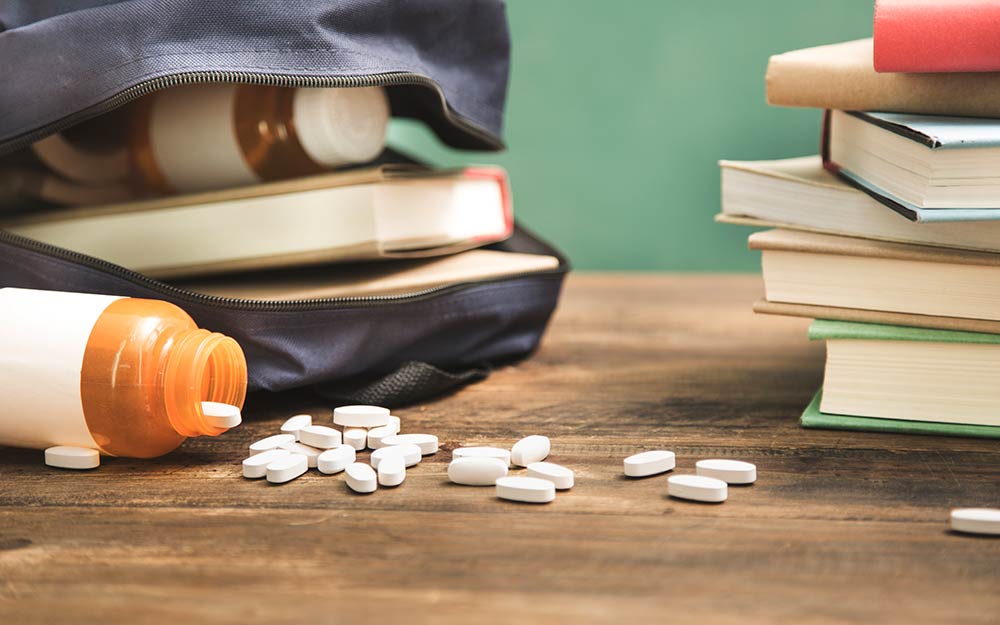According to the National Center for Drug Abuse Statistics, teen drug use is on the rise, with alcohol and marijuana being the most used substances. The report includes these startling statistics:
- Drug use among 8th graders increased 61% between 2016 and 2020.
- By 12th grade, 62% of teenagers have abused alcohol.
- 50% of teenagers have misused a drug at least once.
- 86% of teenagers know someone who smokes, drinks, or uses drugs
during the school day.
“Experimentation with substances is relatively common in adolescence,” says Angela M. Orvis, PsyD, psychologist and clinical supervisor at Rogers Behavioral Health’s West Allis hospital. “Typically, teens try substances for a variety of reasons like curiosity, a desire to be perceived positively, and peer pressure,” she explains.
Below, Dr. Orvis answers commonly asked questions about teen substance use.
How do I tell the difference between experimentation and addiction?
A teen who is experimenting will not have cravings or feel the need to use substances to get through the day. When someone is experiencing addiction, there is a reliance on the substance to feel “normal” and perform daily tasks. They can’t contain use to social circumstances, and their use is significant. Addiction can sometimes lead a person to use more dangerous substances, such as prescription pills or IV drugs to achieve the same level of feeling high. Also, use at school or work can occur more frequently, as can using in isolation.
Why can experimentation turn into addiction?
Family history of addiction, perceiving relief from symptoms of depression and anxiety or to help manage sleep, or to deal with ongoing or unresolved trauma are the main reasons why we see teen addiction.
What should I do if I suspect my teen is using substances?
Attempt an open conversation and approach them with a supportive tone. If emotions run too high, there’s a chance it will decrease the likelihood of open conversations in the future. We also recommend seeking out a trained professional to help assess and provide appropriate interventions and recommendations.
How does Rogers treat teen addiction?
Rogers’ multidisciplinary teams offer compassionate and evidence-based care consisting of cognitive behavioral therapy (CBT), and dialectical behavioral therapy (DBT). We focus on relapse prevention, educate about the physical impact of substances on the body, and teach teens how to deal with emotions through positive coping skills.
All levels of care incorporate family or guardian support sessions to provide updates and opportunities to work on expectations for the home setting to be as successful as possible. Our psychiatry team also provides medication management, including medication-assisted treatment if needed.
How Rogers can help
Rogers offers multiple levels of care for mental health and addiction treatment for adolescents, including residential treatment in West Allis, Wisconsin. Call 800-767-4411 or complete our online request form.
Listen to our podcast to learn more about reducing the risk of teen addiction.


